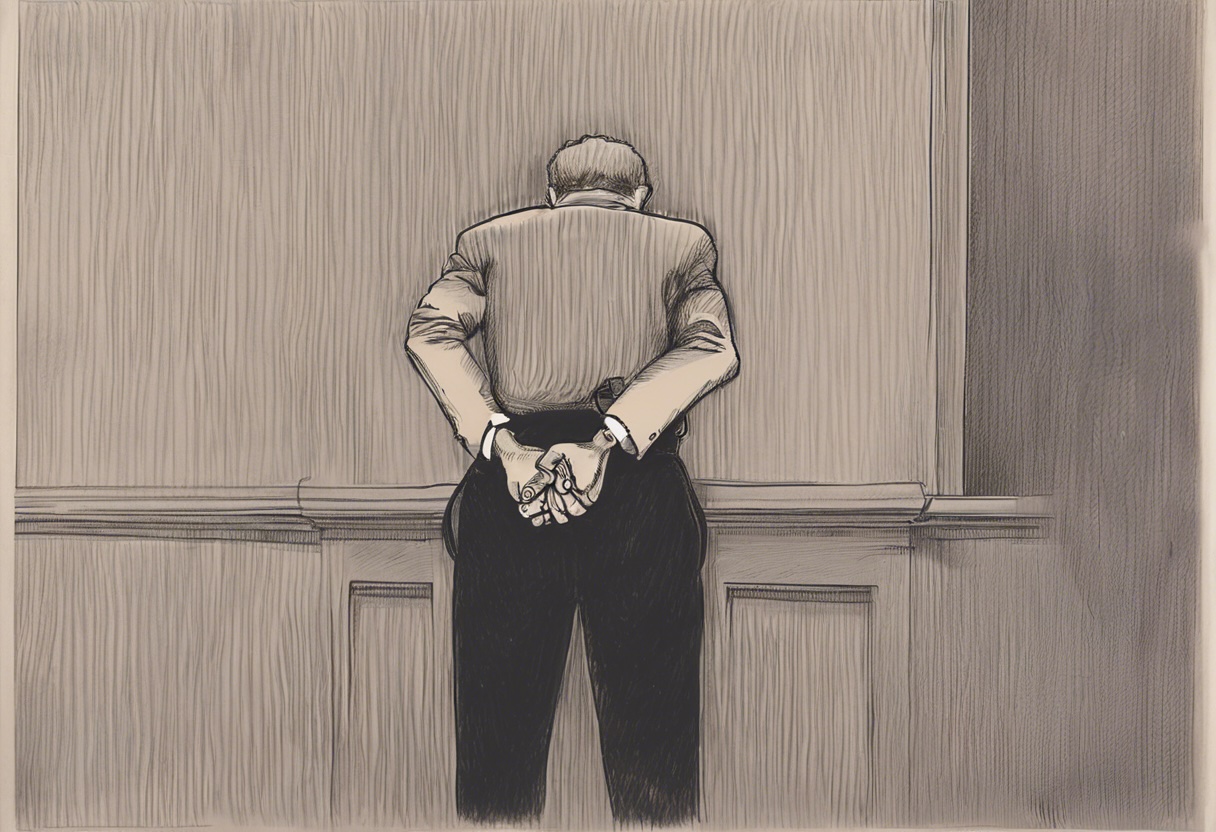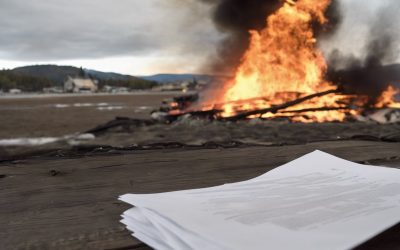This week’s top three summaries: R v Jackson, 2025 ONSC 1677: s11(b) new #arrest, R v Stewart, 2025 ONSC 1277, #possession in glovebox, R v Zborowsky, 2025 ABCJ 44: #credibility factors
R v Jackson, 2025 ONSC 1677
[March 14, 2025] Charter s.11(b): Arrest Interfering with Ongoing Trial Proceedings [M. Gibson J.]
AUTHOR’S NOTE: This case highlights how police discretion in arrest timing can impact an accused’s right to a timely trial under s.11(b) of the Charter. The accused was arrested outside the courtroom just before their hearing, causing a delay that pushed the case beyond the Jordan ceiling. The court ruled that since police are part of the Crown for the purpose of delay calculations, their decision to arrest at that moment was a contributing factor to the delay.
As a result, the court ordered a stay of proceedings, reinforcing that police must consider the impact of their actions on trial timelines, especially in complex sexual assault cases that require multiple hearings.
Overview
[1] Steven Jackson (“the Applicant”) was arrested on July 3, 2022. He is charged on an Indictment dated February 23, 2023, with eight counts, including assault, assault with a weapon, mischief, criminal harassment, uttering a threat to cause death, and uttering threats to kill an animal.
[3] The Applicant seeks a stay of proceedings based on unreasonable delay. The Applicant’s Information was sworn in Kitchener, Ontario on July 4, 2022, making the Jordan date January 4, 2025. The total delay from the date of the Information being sworn on July 4, 2022, to the anticipated completion of the trial in the Superior Court of Justice on April 18, 2025, is 1,019 days, or 33 months and 14 days. Both the Crown and Defence agree that this is the correct number.
[4] This delay is 3 months and 14 days over the ceiling set in R. v. Jordan, 2016 SCC 27, and is presumptively unreasonable. The Applicant says that there is no Defence delay in this matter. The Crown submits that 31 days, or one month, should be deducted as Defence delay because the Applicant changed Defence counsel.
[5] This is not a complex case. Delays due to the COVID-19 pandemic are not a factor. The Applicant requests a stay of proceedings pursuant to s. 24(1) of the Charter as his right to be tried within a reasonable time guaranteed by s. 11(b) has been infringed. The Crown resists, and submits that once applicable deductions are applied, the net delay will be below the presumptive ceiling.
Facts
[14] On July 25, 2024, Defence Counsel appeared for what was anticipated to be stage 2 of the s. 276/268 application, however, the Applicant was arrested in the hallway prior to entering the courtroom. The Applicant was arrested due to the contents of his affidavit included in the Supplementary Application Record filed on June 25, 2024, for this matter. His affidavit included a video of the Complainant (a “live video”) in which she can be seen nude, as well as a still image taken from that video. An unredacted copy was provided to the Court and the Crown. It was sent to the Complainant’s counsel in a redacted form.
[15] Upon receipt of the affidavit, the Complainant’s counsel advised the Complainant did not consent to the taking of the photograph. Following the Applicant’s arrest, the Applicant was taken into an interview room and questioned about the photograph in the affidavit. The Applicant was then escorted by police to the detention area on the lower level of the Kitchener Courthouse and processed. Following his release, he was returned to the courtroom. The Crown requested the pretrial motions continue, hours after the Applicant’s liberty had been taken away because of an affidavit he filed on the same motion.
[16] Defence counsel took the position that they could not proceed with the argument for one of two reasons: either (1) the Complainant lied about not consenting to the photograph, which goes to her credibility at trial; or (2) the Complainant was telling the truth about not consenting to the photograph, meaning that Counsel had been involved in the commissioning of a criminal offence – which would have ramifications for the continued representation of the Applicant. In short, the Defence advised: “Mr. Jackson cannot have a fair trial unless there is a finding about whether or not she lied in an effort to avoid cross-examination at this trial about the issue of consent.”
[18] Complainant’s counsel advised that they were not available for the trial dates in September, should they be re-purposed to hear stage 2 of the s.276/278 application. Ultimately the Crown agreed that there was no option other than to adjourn the trial dates. The September dates, save for September 3-6, were vacated on the consent of all parties.
[19] On July 26, 2024, the Defence requested disclosure on the voyeurism charge via e-mail. On August 12, 2024, Defence received disclosure on the voyeurism charge. On September 3, 2024, Defence appeared and set new trial dates on the record. The matter was set for a 10-day trial during the weeks of April 7 and April 14, 2025, which were the earliest dates the trial judge, Justice Smith, had available. The pre-trial motions were set for February 6, 2025, and March 17, 2025.
[20] The Applicant has not been convicted of voyeurism, and the Crown indicated in October 2024 that this charge
Law
[26] If the delay exceeds the presumptive ceiling, the Crown must establish the presence of exceptional circumstances that justify the delay. The onus is on the Crown to establish exceptional circumstances led to a delay exceeding the presumptive ceiling. There are two types of exceptional circumstances: discrete events and particularly complex cases. In such exceptional circumstances the Crown must demonstrate it took reasonable steps prior to the delay exceeding the ceiling. In the case where the Crown is unable to demonstrate these steps, the charges will be stayed: Jordan, at paras. 69-71.
[27] Discrete events are unexpected and uncontrollable happenings which lead to delay that could not reasonably have been mitigated by the Crown. Discrete events can include medical emergencies, recanting witnesses, or misestimation of trial time estimates despite a good faith basis. This analysis is quantitative: delay caused by discrete events is subtracted from the net delay. If the net delay still exceeds the presumptive ceiling, the Court must assess whether the complexity of the case warrants the delay. This analysis is qualitative: the Court must consider the delay “in light of the particular complexity of the case”: Cody, at para. 64.
Analysis
[32] This case has not been affected by discrete events and does not involve complexities that may justify delays under exceptional circumstances. This case involves a series of assaults with one single Complainant. There are no judicial authorizations, and disclosure is not voluminous. The Applicant’s July 25, 2024, arrest resulted in the Complainant being charged with one count of voyeurism involving the same Complainant. I note that this charge was subsequently stayed by the Crown in the Ontario Court of Justice.
Exceptional Circumstances
[36] Since the net delay is above the presumptive ceiling, the burden shifts to the Crown to justify the presumptively unreasonable delay by pointing to exceptional circumstances. The Applicant submits there are no discrete events that would justify the delay beyond the Jordan ceiling. Exceptional circumstances lie outside the Crown’s control in the sense (1) they are reasonably unforeseen or reasonably unavoidable, and (2) Crown counsel cannot reasonably remedy the delays emanating from those circumstances once they arise. So long as they meet this definition, they will be considered exceptional
[37] The key issue that I must grapple with on this application is whether the laying of the new voyeurism charge constitutes an exceptional circumstance that was a discrete event and, if so, was it a discrete event justifying the delay over the presumptive ceiling? [Emphasis by PJM]
[38] I do not assess that it was. The delay in this case was caused by the police mishandling of the voyeurism charge, which unnecessarily derailed the proceedings, and foreseeably precluded the trial proceeding on the then-scheduled dates. [Emphasis by PJM]
[39] The Defence contends that the police did not have reasonable and probable grounds (“RPG”) to lay the voyeurism charge, but even if they did, the new charge could have been handled in a way not designed to interrupt and interfere with these proceedings. I make no finding on the RPG issue, as that charge is not before this Court, but I agree with the assessment that the manner in which the police handled the investigation, arrest and charging of the Applicant was inappropriate. [Emphasis by PJM]
[41] The difficulty with the Crown’s position is that, for the purposes of the delay analysis, the actions of the police as agents of the State are attributable to the Crown. Exceptional discrete events are unexpected and uncontrollable happenings. The advent of the “live photo” issue may have been unexpected by the Crown, but how it played out it was not uncontrollable. Crown counsel might not have foreseen the new allegations in advance, but could have influenced the police not to proceed in the way that they did, as the Crown was advised of the police intention to arrest the Applicant the day before. Moreover, even apart from the role of the Crown, with the application of any forethought, the police must have known that their actions would disrupt the proceedings.
[42] The Applicant was arrested outside the courtroom minutes before Court was to open. The police and the Crown must have known the arrest would prevent the Court from commencing with arguments on the motion. This was the direct result from the decision to arrest the Applicant minutes prior to court opening. Indeed, the police commenced questioning of the Applicant to gather evidence about the new charges immediately following arrest during the time court was to be in session. The police and the Crown would have been aware that any statement provided by the Applicant in response to police questioning about the circumstances under which the live photo was taken would have been relevant and material evidence on the charges on the Indictment before the Court. While police may not be criticized for continuing an investigation of charges before the Court, it is most unorthodox to arrest the accused for this purpose moments before a court hearing, and it was not necessary to do so. The disruptive effect was eminently foreseeable. [Emphasis by PJM]
[43] In making the arrest in this way, the police were reckless to the risk their actions would have in infringing the Applicant’s right to silence, right to remain silent, the presumption of innocence and his right to retain and instruct counsel. The Applicant was arrested for conduct that occurred under the direction of the Defence counsel who was standing next to the Applicant when he was arrested. Both the Police and the Crown should have known their conduct would create a wedge in the solicitor-client relationship that would have to be bridged before this matter proceeded. There was no urgency in this investigation. No necessity to arrest the Applicant and lay this charge at that time. The Applicant had been compliant with the terms of his judicial interim release. The Applicant, through his counsel, could have been forewarned about the anticipated arrest and made arrangements for the Applicant to have been arrested in a less disruptive manner.
[44] The new charge could and should have been handled in a way designed not to interrupt and interfere with the ongoing court proceed [Emphasis by PJM]
[45] Due to the police mishandling of the voyeurism investigation and charge, the original trial dates had to be adjourned and eventually rescheduled to April 2025. It is going to take 33 months and 14 days to complete the Applicant’s trial. Even subtracting Defence delay, the net delay remains 32 months and 14 days.
Conclusion
[48] After the conclusion of the Applicant’s trial, and accounting for a Defence delay of 31 days due to the Applicant’s change of defence counsel, the total delay remains 32 months and 14 days. This exceeds the Jordan timelines. This case is not unduly complex and there are no discrete circumstances justifying the delay. As such, the Applicant’s right to a trial within a reasonable time has been violated. Accordingly, the only sufficient remedy is to stay the proceedings under section 24(1) of the Charter.






